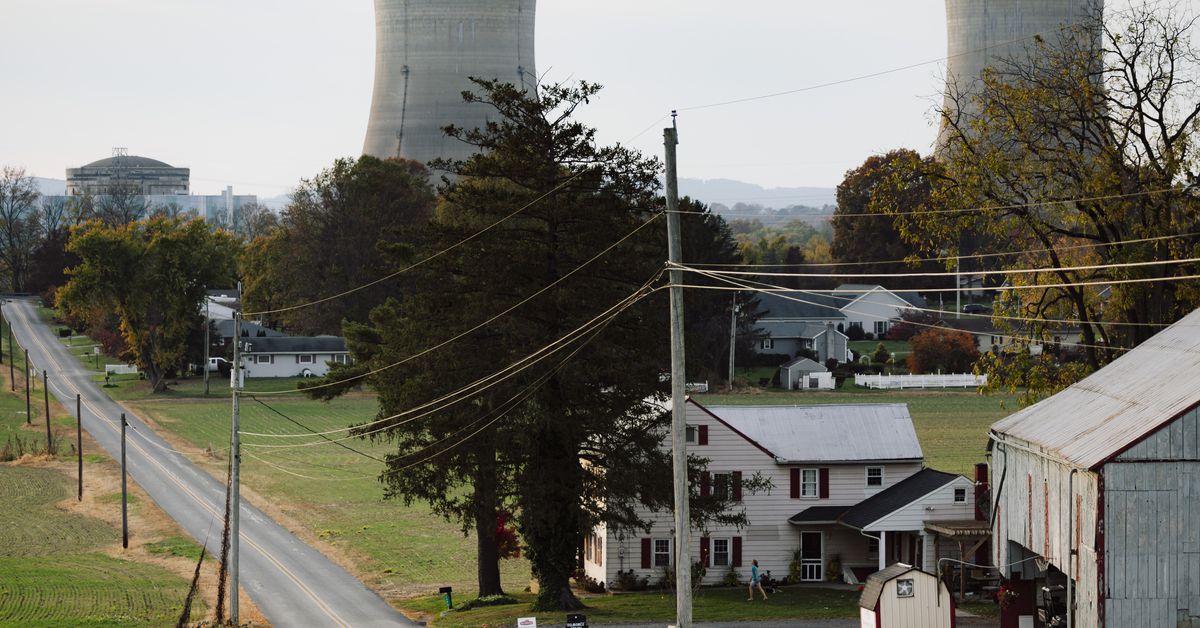The General Services Administration (GSA), a government agency responsible for managing federal buildings, has recently announced a significant nuclear energy contract. This development comes on the heels of several major tech companies entering into nuclear energy agreements last year.
A $840 Million Contract for 10 Million Megawatt-Hours of Electricity
The 10-year contract is worth $840 million and covers the purchase of 10 million megawatt-hours of electricity annually. According to the GSA, this is equivalent to meeting the power needs of over 1 million homes each year. The agency has awarded the contract to Constellation, which operates the largest nuclear fleet in the nation.
Constellation spokesperson Paul Adams notes that nuclear energy will account for approximately 4 million megawatt-hours of the total electricity purchased under the contract.
Nuclear Energy: A Growing Industry
Silicon Valley is witnessing a growing trend towards nuclear energy to meet increasing electricity demands from AI data centers. As the federal government is the largest consumer of energy in the nation, this contract marks a significant boost for the nuclear industry.
"Nuclear energy was once excluded from many corporate and government sustainable energy procurements," said Joe Dominguez, Constellation’s president and CEO. "However, things have changed. This agreement demonstrates how the US government joins Microsoft and other entities in supporting continued investment in reliable nuclear energy."
Constellation: A Leading Nuclear Energy Provider
Constellation generates 10% of the nation’s carbon pollution-free energy, with a majority coming from nuclear power plants. The company also produces hydro, wind, and solar power, as well as electricity from gas-fired power plants. Constellation has set a goal to reach 100% carbon-free electricity by 2040.
While the company declined to provide details on how much of the contracted electricity will come from each source aside from nuclear power plants, it is clear that this contract represents a significant opportunity for the nuclear industry.
A Historic Procurement Contract
"This historic procurement locks in a cost-competitive and reliable supply of nuclear energy," said GSA Administrator Robin Carnahan. "We’re demonstrating how the federal government can join major corporate clean energy buyers in spurring new nuclear energy capacity and ensuring a reliable, affordable supply of clean energy for everyone."
The contract will enable Constellation to extend licenses for existing nuclear power plants and invest in new equipment and technology, resulting in an additional 135 megawatts of capacity. The GSA has agreed to purchase 2.4 million megawatt-hours of electricity from this added capacity over the next decade.
Impact on Other Agencies
The contract extends to not only GSA buildings but also to 13 other federal agencies, including:
- Department of Veterans Affairs
- Department of Transportation
- Federal Bureau of Prisons
- National Park Service
- Social Security Administration
- US Mint
Stabilizing Electricity Prices
The GSA frames the contract as a means to lock in more affordable prices, given increasing electricity demands from data centers and AI facilities. This will provide federal agencies with budgetary stability and protection from future price increases.
"We’re demonstrating how the federal government can join major corporate clean energy buyers in spurring new nuclear energy capacity and ensuring a reliable, affordable supply of clean energy for everyone," said GSA Administrator Robin Carnahan.
A Growing Trend Towards Nuclear Energy
Google, Meta, Amazon, and Microsoft have all entered into significant nuclear energy agreements over the past year. In September 2022, Microsoft and Constellation announced plans to restart a shuttered reactor at Three Mile Island in Pennsylvania.
The Biden administration has made nuclear energy a key component of its plan to transition the US away from fossil fuels towards cleaner energy sources. Last October, the Department of Energy announced a $1.52 billion loan to help restart a retired nuclear generating station in Covert Township, Michigan.
Even President-elect Donald Trump’s campaign agenda included efforts to support nuclear energy production.
A Bright Future for Nuclear Energy?
The recent contract and growing trend towards nuclear energy indicate a promising future for the industry. As more companies and governments turn to nuclear energy, it will be interesting to see how this shift affects the nation’s energy landscape.




